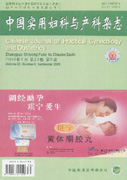|
Poor control of blood glucose and adverse pregnancy outcome.
WANG Zi-lian,CHEN Hai-tian
2020, 36(5):
405-408.
DOI: 10.19538/j.fk2020050106
Hyperglycemia during pregnancy is the most common complication of pregnancy.Poor control of blood glucose during pregnancy will increase the incidence of adverse pregnancy outcome,including various maternal and fetal risks in the short and long term.In this paper,we will introduce the relationship between poor blood control of glucose and adverse pregnancy outcome,so as to improve the awareness of health care workers and pregnant women with diabetes mellitus on the harm of hyperglycemia during pregnancy.
|

